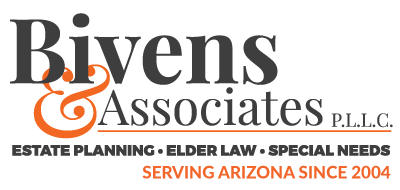HOLIDAY SENIOR WELL-BEING CHECKLIST
 The holidays are often a good time to check on senior loved ones as you gather with family and friends. Sometimes those in-person visits can reveal concerns not easily detected over phone calls. Signs of deteriorating health may not be what is seems at the surface; it could be signs of something more. Here are few warning signs that changes may be occurring, and it may be time to enlist more support:
The holidays are often a good time to check on senior loved ones as you gather with family and friends. Sometimes those in-person visits can reveal concerns not easily detected over phone calls. Signs of deteriorating health may not be what is seems at the surface; it could be signs of something more. Here are few warning signs that changes may be occurring, and it may be time to enlist more support:
Emotional or cognitive changes.
Changes in personality or interest in activities they previously loved is a common sign of deteriorating health in older adults and may warrant a visit to a medical professional to determine if there are mental health or neurological issues at play.
Do you notice they ask the same questions repeatedly and do not recall the answers. Short-term memory loss is not necessarily “normal” in seniors and can be a sign of bigger issues to come, such as dementia. You may notice bills are piling up or maybe they haven’t been taking their medicine as prescribed. You may want to check their pill bottles for possible missed doses or expiration dates, or the mailbox for piles of unopened mail. Forgetfulness shouldn’t be ignored.
Physical Changes
Mobility issues are a well-known sign of declining health in older individuals. Are they having difficulty with balance? Getting up from a chair? Having trouble going up stairs? You may notice that they sit around longer, don’t get out as much, and stay in one place all day. Mobility issues also puts them at higher risk for possible falls.
Loss of Appetite or Weight
You put out their very favorite holiday foods, but they barely eat. Have you noticed a change in eating habits? Unusual or poor eating habits or decreased appetite can be a sign of poor health, as well as weight loss. You may want to consult a doctor.
Unexplained bruising
Unexplained bruising, cuts, burns may be a sign they are falling and not telling you or remembering. Look out for tripping hazards and remove them and be sure there are appropriate safety grab bars in bathrooms. Falls can be very serious for seniors.
Poor hygiene
Whether motivation is gone or there are physical or cognitive issues preventing appropriate regular bathing, teeth brushing, changing into clean clothes, etc., this is a very common sign that something is “off” and should not be ignored.
More Frequent Illnesses
Older adults are more prone to colds, flu, UTIs or other infections. It is important to get them proper care as soon as possible. It could be a regular cold, but more frequent illnesses could also be a sign that they are not able to take care of themselves as needed, or they may just need a higher level of medical care.
Changes in living conditions
Disorganized home- Sink piling up? Laundry everywhere? Over-flowing garbage? While everyone has their own standard of housekeeping, an inordinately dirty or disorganized home may be a warning sign.
Driving concerns
Unexplained dents in their car? Getting lost while driving to usual places? Afraid to drive? Do not ignore these warning signs- it may be time to make alternative transportation arrangements.
While these changes may be nothing, it could also be serious and require attention right away. We hope you enjoy the holidays, and if you see any of these warning signs you can help your senior loved one stay safe and healthy.
In order to best help, you and your senior loved one depending upon circumstances may need to work with a number of professionals who understand the unique issues that arise with aging, such as a physician, psychiatrist, care manager, home health agency, senior placement professional, financial advisor, and an elder law attorney.
Elder law attorneys routinely work with seniors and their families to ensure the right legal documents are in effect to authorize chosen trusted persons to assist the senior in the management of their medical care and financial matters, guide families in care options, determine if public benefits (e.g., Medicaid or VA) are available to help pay for long-term care, and refer families to other vetted senior service professionals that can help as may be needed from time to time. When you are worried about your senior’s well-being, we have the legal knowledge and community resources available to help.
To schedule your consultation, call 480-922-1010 or email info@bivenslaw.com.
We are still accepting new clients in December and are here to help.
